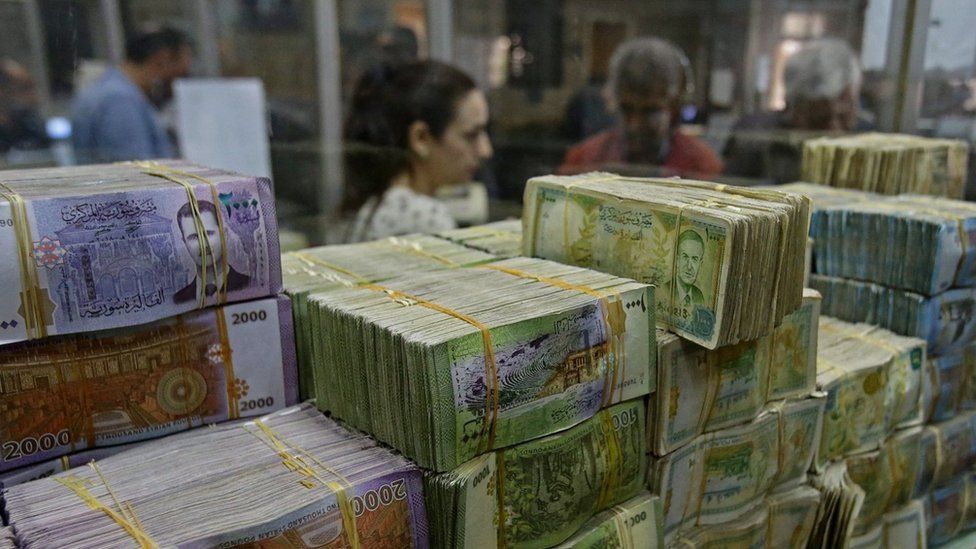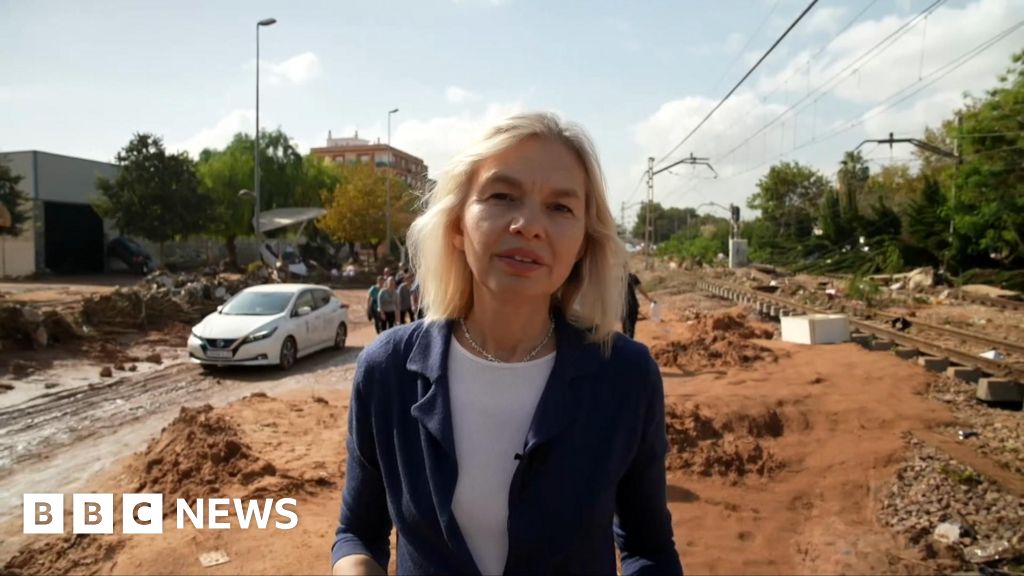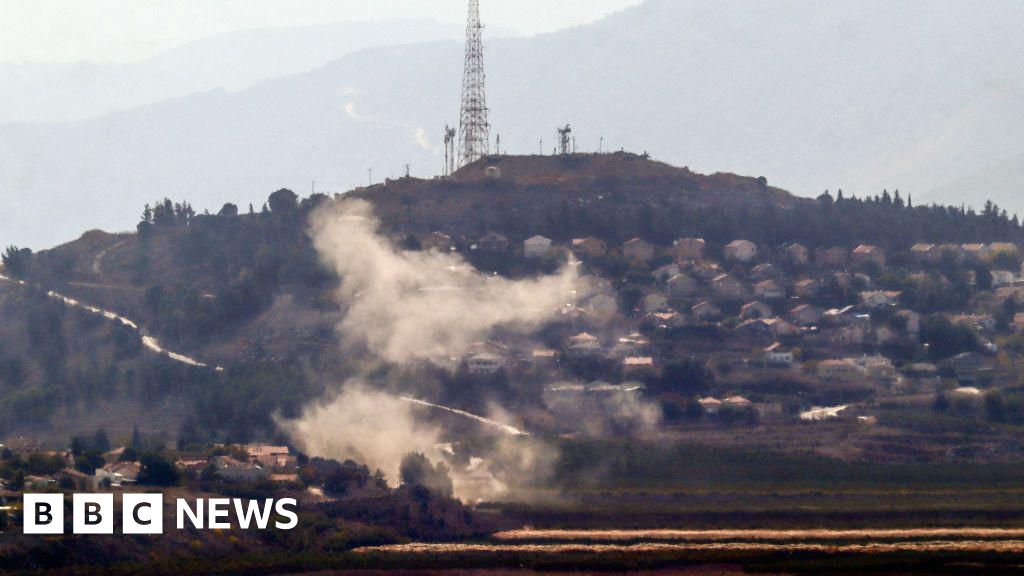ARTICLE AD BOX
 Image source, Getty Images
Image source, Getty Images
At the start of the civil war, one US dollar was worth 47 Syrian pounds. Now, it is worth 15,000
Syria's government has doubled public sector pay while at the same time cut fuel subsidies, as it tries to boost the war-torn country's economy.
The announcements were made overnight, after the value of the Syrian pound fell to a new low against the US dollar on the parallel, or black, market.
The currency's collapse has helped fuel hyperinflation and push 90% of the population below the poverty line.
The hardship has recently sparked rare protests in government strongholds.
Syria has been devastated and more than half a million people have been killed by the civil war that erupted after President Bashar al-Assad cracked down violently on peaceful pro-democracy demonstrations in 2011.
More than 15 million people - 70% of the population - require humanitarian assistance, with 12.1 million considered food insecure.
Presidential decrees issued early on Wednesday ordered a 100% increase in the salaries and pensions of civil servants, military personnel and government contractors - the first such rise since December 2021.
They also set the overall minimum monthly wage for all workers at 185,940 Syrian pounds, which is worth $21.76 (£17.09) at the official exchange rate of 8,542 and $12.40 at the current parallel market rate of 15,000. At the start of the war, a dollar was worth 47 Syrian pounds.
The new minimum wage would only be enough to buy a third of the essential food that the World Food Programme (WFP) calculates a family of five requires each month, according to data from May. It would also cover just over a tenth of such a family's minimum household expenditure.
Vulnerable households have been struggling to pay their bills due to spiralling inflation, with the minimum expenditure figure 62% higher than it was in May 2022 and 159% higher than in September 2021, according to the WFP.
In a separate statement issued overnight, the commerce ministry announced the total lifting of subsidies on petrol and a partial lifting of subsidies on fuel oil. The price of petrol will rise to 8,000 Syrian pounds ($0.53) per litre from 3,000 pounds, and fuel oil to 2,000 pounds per litre from 700 pounds.
Prime Minister Hussein Arnous said last year that cutting fuel subsidies would ensure the poorest families benefited, reduce the budget deficit and help stabilise the Syrian pound.
However, economists have noted that his government cannot afford to maintain the subsidies.
They have also warned that the public sector pay rise is likely to further increase inflation and the Syrian pound's depreciation, meaning that the economic benefit could be all but wiped out within months.
Officials have blamed the economic crisis and the hardship among its ordinary Syrians on strict US sanctions imposed in 2019, which targeted any foreign person or entity knowingly providing support to Mr Assad's government. The US have said the measures do not affect humanitarian aid.

 1 year ago
15
1 year ago
15








 English (US)
English (US)